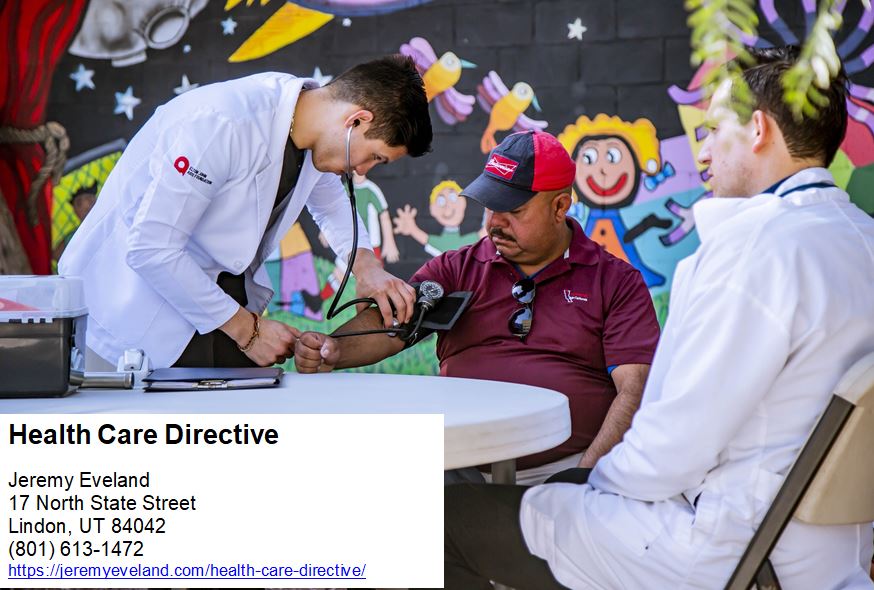In this article, you’ll learn about the importance of a Health Care Proxy. A Health Care Proxy is a legal document that allows you to designate someone to make medical decisions on your behalf if you become unable to do so. It’s crucial to have a Health Care Proxy in place to ensure that your wishes are respected and that the right decisions are made regarding your health. By understanding the purpose and benefits of a Health Care Proxy, you can take the necessary steps to protect yourself and have peace of mind. If you want to learn more about this topic, don’t hesitate to reach out to the attorney listed on our website and take the next step towards safeguarding your future.
What is a Health Care Proxy?
Definition of a Health Care Proxy
A Health Care Proxy, also known as a medical power of attorney, is a legal document that designates a trusted individual to make medical decisions on your behalf in the event that you are unable to do so yourself. This document allows you to appoint someone to act as your advocate and ensure that your medical wishes are carried out.
Purpose of a Health Care Proxy
The purpose of a Health Care Proxy is to ensure that your medical wishes are respected and followed, even if you are unable to communicate or make decisions for yourself. It provides peace of mind knowing that someone you trust will be there to advocate for your best interests, making difficult medical decisions easier for both you and your loved ones.
Importance of Having a Health Care Proxy
Ensuring Your Medical Wishes are Respected
Having a Health Care Proxy in place is crucial to ensure that your medical wishes are respected and followed. By appointing a trusted individual, you can have confidence that they will make decisions that align with your values and beliefs. This can include decisions on life-sustaining treatments, end-of-life care, and other medical interventions. Without a Health Care Proxy, these decisions may be left in the hands of medical professionals or family members who may not know your wishes.
Making Difficult Decisions Easier for Your Loved Ones
A Health Care Proxy can also alleviate the burden and stress placed on your loved ones when difficult medical decisions need to be made. By appointing a specific individual as your proxy, you are giving them the authority and responsibility to make decisions on your behalf. This can prevent conflicts among family members and provide clarity during challenging times. Your proxy can shoulder the weight of these decisions, allowing your loved ones to focus on supporting you emotionally.

Click Here For More Information
How Does a Health Care Proxy Work?
Choosing a Proxy
Choosing a Health Care Proxy requires careful consideration. It is important to select someone you trust implicitly to make decisions that align with your wishes. This individual should have a clear understanding of your values and beliefs regarding medical care. It is advisable to choose someone who is capable of handling the responsibilities that come with being a proxy, as they may be required to make difficult decisions under emotionally challenging circumstances.
Discussing Your Wishes with Your Proxy
Once you have chosen a Health Care Proxy, it is essential to have open and honest discussions about your medical wishes. Your proxy should be fully aware of your preferences regarding various medical scenarios, including end-of-life care, pain management, and organ donation. By sharing this information, you can ensure that your proxy has a comprehensive understanding of your desires and can advocate for you effectively.
Legal Requirements and Documentation
To make your Health Care Proxy legally valid, it is crucial to follow the necessary legal requirements and documentation. These requirements may vary depending on your jurisdiction, so it is advisable to consult an attorney familiar with healthcare laws in your area. Generally, you will need to sign a specific form or document that designates your chosen proxy. It is important to keep the original document in a safe place and provide copies to your proxy, healthcare providers, family members, and primary care physician.
Guidelines for Choosing a Health Care Proxy
Trustworthiness and Reliability
When choosing a Health Care Proxy, it is essential to select someone you trust implicitly. They should be reliable, responsible, and capable of making important decisions on your behalf. Trustworthiness is crucial as they will be representing your best interests and advocating for your medical wishes.
Close Relationship and Understanding
Ideally, your Health Care Proxy should be someone with whom you have a close relationship. This person should have a deep understanding of your values, beliefs, and medical preferences. A close relationship ensures that they are familiar with your wishes and can make informed decisions on your behalf.
Availability and Accessibility
Your Health Care Proxy should be readily available and easily accessible. In the event of a medical emergency or incapacitation, they may need to make time-sensitive decisions. It is important to select someone who can be reached promptly and is willing to take on the responsibilities associated with being a Health Care Proxy.

Discussing Your Medical Wishes with Your Proxy
Open Communication
Open and honest communication is paramount when discussing your medical wishes with your Health Care Proxy. It is crucial to express your desires clearly and ensure that your proxy understands your preferences. Encourage your proxy to ask questions and seek clarification to ensure that they have a comprehensive understanding of your wishes.
Explanation of Personal Values and Beliefs
When discussing your medical wishes with your proxy, it is important to explain your personal values and beliefs. This will help them make decisions that are in line with your principles. Discuss your views on life-sustaining treatments, religious considerations, and any other factors that may influence your medical care decisions.
Specific Medical Scenarios
It is valuable to discuss specific medical scenarios with your Health Care Proxy to provide them with guidance in making decisions. This can include discussions about end-of-life care, pain management, resuscitation, and artificial life support. By addressing these scenarios, your proxy can have a clearer understanding of your wishes and be better prepared to make difficult decisions on your behalf.
Legal Requirements and Documentation
Requirements for Creating a Valid Health Care Proxy
To ensure that your Health Care Proxy is legally valid, it is important to understand the requirements for creating this document. These requirements can vary depending on your jurisdiction, so seeking legal advice is recommended. Generally, you will need to execute a specific form or document that meets the legal criteria outlined in your area. Following these requirements will help ensure that your Health Care Proxy is legally enforceable.
Choosing Alternate Proxies
In some cases, you may want to select alternate proxies in case your primary proxy is unavailable or unable to act on your behalf. It is important to discuss this with your primary proxy and ensure that they are comfortable with the chosen alternates. Providing clear instructions on the order of preference for alternate proxies will help ensure that your wishes are followed even if your primary proxy is unable to fulfill their role.
Revoking or Changing Your Health Care Proxy
There may come a time when you need to revoke or change your Health Care Proxy. This can be due to various reasons, such as a change in relationship with the chosen proxy or a shift in your medical preferences. If you wish to revoke or change your proxy, it is important to consult with an attorney familiar with healthcare laws in your jurisdiction. They can guide you through the legal process of revoking or amending your Health Care Proxy.
Informing Your Medical Team and Loved Ones
Providing Copies of Your Health Care Proxy
To ensure that your medical wishes are known and respected, it is important to provide copies of your Health Care Proxy to relevant individuals. This includes your healthcare team, family members, and primary care physician. By sharing this document, you can ensure that everyone involved in your medical care is aware of your designated proxy and can act accordingly.
Sharing Your Wishes with Family and Friends
In addition to providing copies of your Health Care Proxy, it is valuable to share your medical wishes with your family and close friends. By discussing your desires and preferences, you can provide clarity and alleviate any potential conflicts or misunderstandings. It is important to have these conversations with your loved ones, as they may be called upon to support your proxy and ensure that your wishes are honored.
Informing Your Primary Care Physician
Informing your primary care physician about your Health Care Proxy is crucial to ensure seamless communication and coordination of care. By sharing this information, you can ensure that your physician is aware of your designated proxy and can involve them in any decision-making processes. This collaboration will help ensure that your medical wishes are followed and that your physician is fully informed about your preferences.
When Does a Health Care Proxy Come into Effect?
Incapacity and Decision-Making
A Health Care Proxy comes into effect when you are deemed incapacitated and unable to make medical decisions for yourself. This can occur due to a severe illness, injury, or cognitive impairment. Once your incapacitation is determined by healthcare professionals, your designated proxy will assume the responsibility of making medical decisions on your behalf.
Emergency Situations
In emergency situations where you are unable to communicate your medical wishes, a Health Care Proxy is essential. Emergency situations can occur suddenly, leaving you unable to provide consent or communicate your preferences. Having a designated proxy ensures that someone is authorized to make critical decisions on your behalf, providing peace of mind during unexpected medical emergencies.

Making Difficult Decisions
End-of-Life Care
One of the most challenging decisions a Health Care Proxy may face is making choices regarding end-of-life care. This can include decisions about when to withdraw life-sustaining treatments, the use of palliative care, and hospice care. By discussing your wishes in advance, you can provide your proxy with guidance and clarity during these difficult decisions.
Artificial Life Support
Decisions regarding the use of artificial life support, such as ventilators or feeding tubes, may need to be made by your Health Care Proxy. These interventions can prolong life but may conflict with your wishes or values. By discussing your preferences with your proxy and including them in your Health Care Proxy document, you can ensure that your wishes are known and respected.
Pain Management and Palliative Care
Another aspect where your Health Care Proxy may be involved is pain management and palliative care. If you have specific preferences regarding pain relief or comfort measures, it is important to discuss these with your proxy. By including these instructions in your Health Care Proxy, you can ensure that your proxy can advocate for appropriate pain management and quality end-of-life care.
Organ Donation
Your Health Care Proxy may also play a role in decisions regarding organ donation. If you have specific wishes regarding organ donation, it is important to discuss this with your proxy and include it in your Health Care Proxy document. By doing so, you can ensure that your wishes regarding organ donation are known and honored if the opportunity arises.
Seeking Legal Assistance
Importance of Consulting an Attorney
Seeking legal assistance when creating a Health Care Proxy is crucial to ensure that the document meets all legal requirements and is enforceable. An attorney experienced in healthcare law will guide you through the process and ensure that your wishes are properly documented and legally valid. They can also provide clarification on any legal questions or concerns you may have.
Finding an Attorney
Finding an attorney experienced in healthcare law can be done through various means. You can start by asking for recommendations from friends, family, or your primary care physician. Additionally, online directories and legal referral services can help you find attorneys who specialize in healthcare law. It is important to choose an attorney with expertise in this area to ensure that your Health Care Proxy is prepared correctly.
Next Steps and Call-to-Action
Now that you have learned about the importance of having a Health Care Proxy, it is crucial to take the next step and seek legal assistance to create this important document. By consulting with an attorney experienced in healthcare law, you can ensure that your medical wishes will be respected and followed, even in difficult circumstances. Don’t delay in taking action. Contact an attorney today to begin the process of creating your Health Care Proxy and providing peace of mind for yourself and your loved ones.

